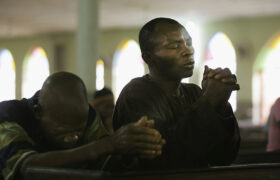7/2/2024 India (International Christian Concern) — In a speech this week in India’s lower house of parliament, Rahul Gandhi, leader of the opposition, raised the issue of violent Hindu nationalism before an audience that included Prime Minister Narendra Modi.
Gandhi’s role as opposition leader was only recently resurrected after the leading BJP party’s recent poor performance in the national elections, which allowed the opposition enough seats in parliament to choose such a position.
Gesturing to Modi and the other BJP parliamentarians in his comments on Monday, Gandhi decried what he termed their constant talk of violence and hatred. “You are not Hindu,” he said, distinguishing BJP rhetoric and Hindu ideals of peace and harmony.
“There has been a systematic, full-scale assault on the idea of India, the Constitution,” Gandhi said, and against “people who resisted the ideas being proposed by the BJP, who resisted the attack on the Constitution … Anyone who resisted the idea of concentration of power and wealth, aggression [against the] poor and Dalits and minorities was crushed.”
Portions of Gandhi’s speech were expunged from the parliamentary record, prompting protests from the Congress party and highlighting the explosive nature of Gandhi’s challenge to the BJP’s nationalistic tendencies.
Responding to Gandhi’s comments, Prime Minister Modi suggested he had attacked “the entire Hindu community.” Gandhi, a Hindu himself, has previously spoken out against violent Hindu nationalism, saying that “there is nothing Hindu about what the BJP does” at a forum last year in Paris.
After surprising electoral losses in regional elections last year, Gandhi’s Congress party is now enjoying unexpected parliamentary influence following last month’s national elections, in which the Congress party gained 47 seats and the BJP lost 63. For the first time since Modi’s rise to power in 2014, the BJP is forced to rule with a coalition of other parties.
Early reports suggest that Modi will have a difficult time promoting Hindu nationalism in this term, something that has endeared him to his core support base. The two largest parties in the BJP coalition — the TDP and JD(U) — are decidedly more secular than the BJP, and their leaders have previously wrangled with Modi.
Analysts believe the coalition will likely cooperate with the BJP on foreign policy and the economy but will likely balk at efforts to continue eroding India’s secularism. While time will tell whether this outlook is correct, the 2024 elections may mark the beginning of a reduced BJP in India.
While Modi is certainly handicapped in his ability to advance his nationalist agenda, it should not be forgotten that he is still at the helm and has laid out a clear agenda to reduce the country’s religious minority communities in favor of a state of and for Hindus.
With or without a clear electoral mandate, Modi’s crosshairs are on the country’s religious minorities. Whether Muslims, Sikhs, Christians, or members of another group, they represent a convenient bugbear for a leader with an increasingly narrow definition of what it means to be Indian. More immediately, they may provide a convenient target for frustrated nationalists who, despite failing to deliver Modi a resounding victory, still lead the political conversation in India.
To read more news stories, visit the ICC Newsroom. For interviews, please email press@persecution.org.
The post Religious Persecution Takes Center Stage in Indian Parliament appeared first on International Christian Concern.


